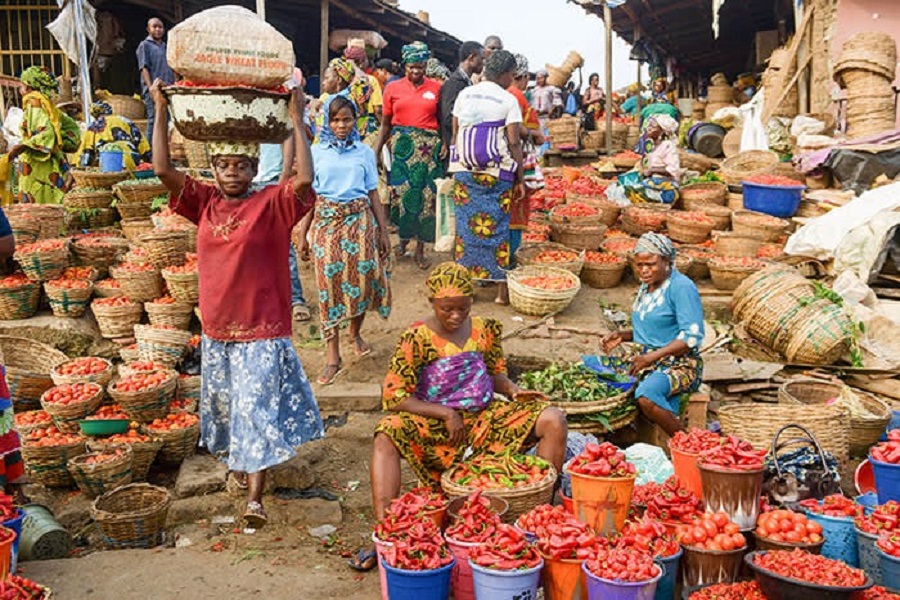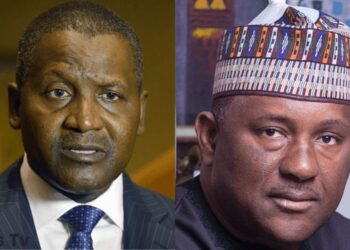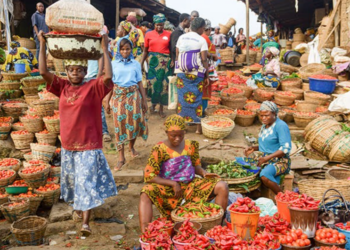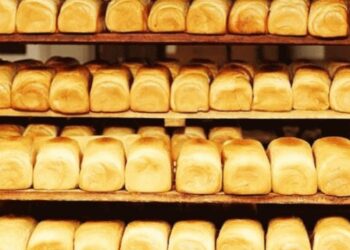Nigeria’s core inflation rate soared to a 5-year record high in April 2022 as the index rose by 14.18% year-on-year in the review month from 13.91% recorded in the previous month.
This is according to information contained in the Consumer Price Index report released by the National Bureau of Statistics (NBS).
According to the NBS, Nigeria’s “all items less farm produce”, otherwise known as Core inflation quickened by 0.26% points month-on-month in April 2022, largely due to significant increases in the prices of gas, liquid fuel, clothing materials, repair and hire of clothing amongst other clothing accessories.
A cursory glance at the historical data showed that Nigeria’s core index has risen by over 70% in the past five years (2017–2022), with an average monthly increase of 11.5% to date. To put core inflation in context, it is a component of the consumer price index, which excludes the prices of volatile agricultural produce.
They include items like health, transport, communication, education, clothing, recreation and culture amongst other non-agricultural items. The core index is expected to be relatively stable compared to the food index, considering that the items that are usually volatile in terms of price are exempted from the basket.
Factors causing inflationary pressure
Incessant hikes in the price of goods and services have been a recurrent issue in Nigeria, since 2019 when the federal government ordered the closure of land borders, which caused a spiral effect in food prices. This was also exacerbated by the covid-19 pandemic as the cost of most services soared across the world.
Most recently is the energy crisis ravaging the global economy after Russia invaded the territories of Ukraine in February leading to a number of reactions from the western economies, which caused the price of crude oil to skyrocket. Note that Russia is a major exporter of crude oil and energy in the world.
The ripple effect of the bullish crude oil market led to a significant hike in the cost of energy, fuel, and by extension transportation, maintenance, and power. Nigerians now have to grapple with the increased cost of liquified petroleum gas (LPG) used in cooking, petrol in fuelling their vehicles and generators, especially since electricity in Nigeria is still below desired levels.
The double whammy effect of the rise in the price of food items and services has plunged the purchasing power of average Nigerians. Farmers have attributed the rise in food prices to the level of insecurity in food-producing states. Traders on the other hand have hinged it on transportation costs and extortion at various checkpoint stations while travelling.
The enormous problems in various areas of the Nigerian economy have seen the core inflation, which is expected to be less volatile hit a record five-year high, while food inflation continues to gallop at a high pace.
How these affect you
Inflation generally is defined as the rate of increase in the price of goods and services in a particular period in time (usually measured monthly). Inflation rate typically means that the purchasing power of the people is gradually eroding. Unfortunately, in the case of Nigeria, it is moving at a high pace.
Olumide Adesina, an Investment Analyst, while discussing on Nairametrics’ Daily News Review session on Twitter Spaces on Monday, he explained that inflation is one of the strongest indicators of a country’s wealth and also the strongest indicator of how the purchasing needs of an average Nigerian would be.
“For someone who works for a company and earns a fixed amount as monthly remuneration, when inflationary pressure comes to play and you see increments in the prices of goods and services, while salary is stagnant, it means that such an individual will start spending more despite having a fixed income and the value of that currency in purchasing terms becomes less valuable,” he said.
He also added that due to the effect of inflation on the economy, most monetary policymakers always try to tame it as much as possible, as they could see that high inflation affects the productivity of the country. He however suggested that we might be seeing a hawkish stance of the Central Bank in their next MPC meeting, having considered the recent inflation numbers.
























